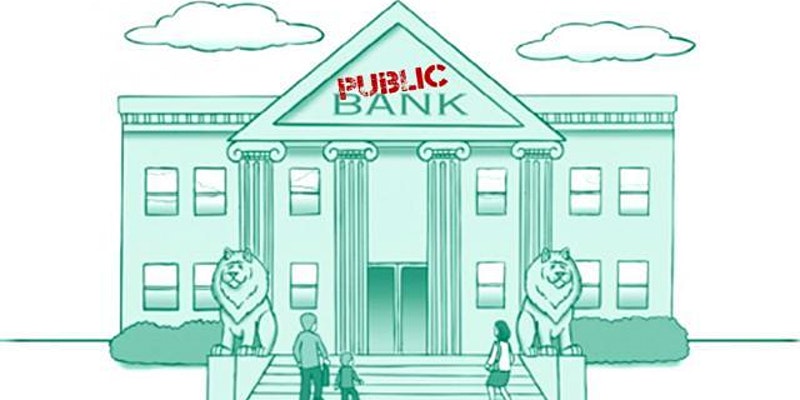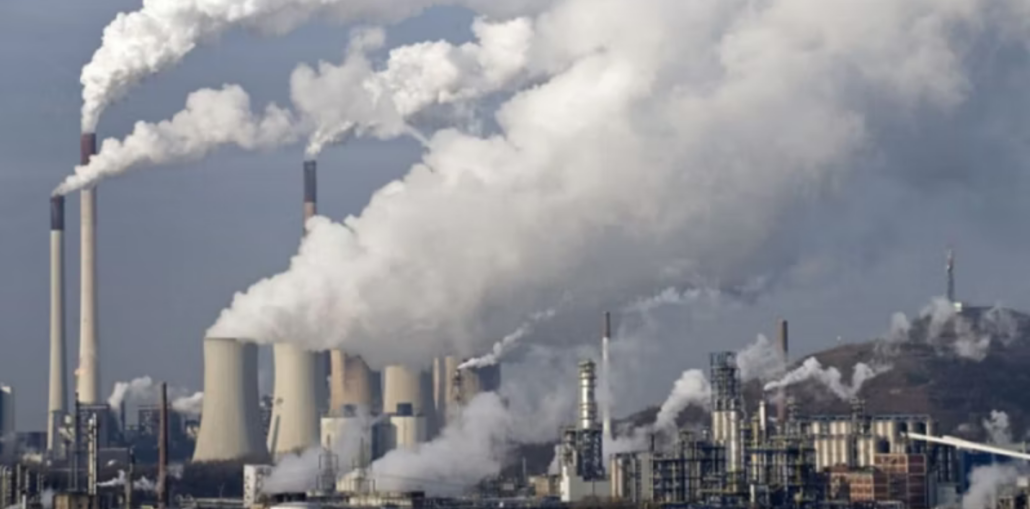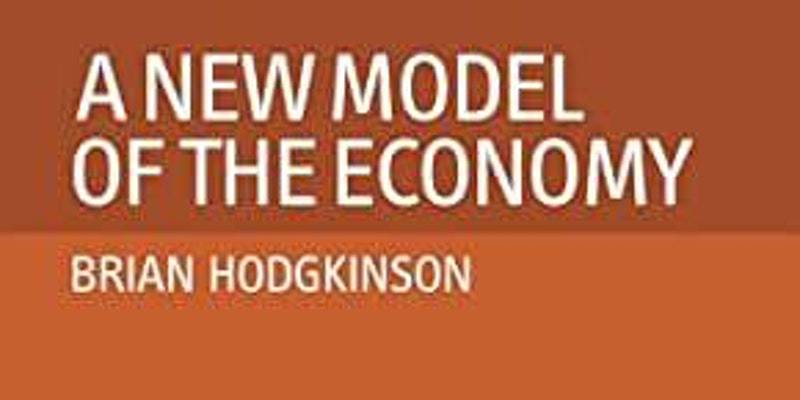|
Sun | Mon | Tue | Wed | Thu | Fri | Sat |
|---|
May | May | May | 1 - Public Banks – The What, the Why and the How
Session 4 6:30 pm-8:00 pm 2022.06.01 149 East 38th Street, New York, NY 10016  PUBLIC BANKS – THE WHAT, THE WHY AND THE HOWAre public banks a better alternative to our existing private banking model? This 5-session course will discuss the public bank model, comparing and contrasting it to private banks to highlight marked differences between them and their implications for the community. The course will also look into past and present experiments in public banking in the United States and showcase their profound effect in our history. The Bank of North Dakota’s stellar performance during the 2008 financial crisis will be analyzed. Instructors Earl Staelin – Earl is a lawyer and the chair of the Rocky Mountain Public Banking Institute, a 501(c)(3) nonprofit, whose mission is to educate Coloradans, legislators, and other public officials on the many advantages of a state-owned and local public banks, for a strong, stable, and just economy. He has done extensive legal and financial research and writing on public banking and drafted legislation to establish a state and local public banks. He also worked with public banking advocates to advance public banking in the United States. Alec Tsoucatos, PhD, was born of Greek parents in Alexandria, Egypt, a day before Pearl Harbor in 1941. He attended primary school at a British institution in Alexandria and finished Junior High and High School in Athens, Greece. He received his bachelor’s and master’s degrees in economics from UC Berkeley and his PhD from CU Boulder under the tutelage of Kenneth Boulding. His main interests are in new economics, integrative medicine, positive psychology and progressive mystical Christianity. Dates: Wednesdays: 5/11, 5/18, 5/25, 6/01, 6/08; from 6:30PM to 8:00PM EDT Note: This is an online event. Access information will be made available after registration. REGISTER NOW
| 2 | 3 | 4 |
5 | 6 | 7 - The Joys of a Carbon Wealth Tax: Greening the Economy & Tackling Inequality
2:00 pm-3:30 pm 2022.06.07 149 East 38th Street, New York, NY 10016  THE JOYS OF A CARBON WEALTH TAX: GREENING THE ECONOMY & TACKLING INEQUALITYIs there a policy tool to take on both climate change and unearned income? Join us to learn about the prospects of a carbon wealth tax. To address a worsening climate crisis, economists have often touted the tremendous potentials of carbon pricing. However, evidence suggests that such a policy has so far produced limited effects. This panel of distinguished economists will propose a new concept that targets dirty assets; a brown wealth tax to be levied on carbon-intensive capital instead of products. It is argued that such a shift would help speed up the transition to a green economy with the added benefit of addressing wealth inequality. Our panelists: Dr. Willi Semmler is a professor of economics at the New School of Social Research and Bielefed University (Germany). Professor Semmler has written extensively on empirical macroeconomics, business cycles and the economics of climate change. Dr. Raphaele Chappe holds a PhD in Economics, an LL.M , and a Master’s degree in Comparative Business Law. Her research interests include the link between financial markets and wealth inequality; political economy and the history of economic thought; and the philosophical foundations of microeconomics. Dr. Chappe currently teaches at Drew University. Jose Pedro Bastos Neves is a PhD student at the New School of Social Research. His interests include climate change economics, development finance, Macroeconomics and industrial policy. Jose is the lead author of the paper that forms the substance of this panel discussion. Dates: Tuesday, June 7, 2022; from 2:00PM to 3:30PM EDT Note: It is highly recommended that participants read the paper ahead of the session. Note: This is an online event. Access information will be made available after registration. REGISTER NOW
| 8 - Public Banks – The What, the Why and the How
Session 5 6:30 pm-8:00 pm 2022.06.08 149 East 38th Street, New York, NY 10016  PUBLIC BANKS – THE WHAT, THE WHY AND THE HOWAre public banks a better alternative to our existing private banking model? This 5-session course will discuss the public bank model, comparing and contrasting it to private banks to highlight marked differences between them and their implications for the community. The course will also look into past and present experiments in public banking in the United States and showcase their profound effect in our history. The Bank of North Dakota’s stellar performance during the 2008 financial crisis will be analyzed. Instructors Earl Staelin – Earl is a lawyer and the chair of the Rocky Mountain Public Banking Institute, a 501(c)(3) nonprofit, whose mission is to educate Coloradans, legislators, and other public officials on the many advantages of a state-owned and local public banks, for a strong, stable, and just economy. He has done extensive legal and financial research and writing on public banking and drafted legislation to establish a state and local public banks. He also worked with public banking advocates to advance public banking in the United States. Alec Tsoucatos, PhD, was born of Greek parents in Alexandria, Egypt, a day before Pearl Harbor in 1941. He attended primary school at a British institution in Alexandria and finished Junior High and High School in Athens, Greece. He received his bachelor’s and master’s degrees in economics from UC Berkeley and his PhD from CU Boulder under the tutelage of Kenneth Boulding. His main interests are in new economics, integrative medicine, positive psychology and progressive mystical Christianity. Dates: Wednesdays: 5/11, 5/18, 5/25, 6/01, 6/08; from 6:30PM to 8:00PM EDT Note: This is an online event. Access information will be made available after registration. REGISTER NOW
| 9 | 10 | 11 |
12 | 13 | 14 | 15 - Reality Economics – Reintroducing Land and Money to the Analysis
Session 1 6:30 pm-8:00 pm 2022.06.15 149 East 38th Street, New York, NY 10016  REALITY ECONOMICS – REINTRODUCING LAND AND MONEY TO THE ANALYSISWhat happens in economic analysis when land and money are (re)introduced in the theoretical framework? This 3-part course comprises 5 classes each and covers the entirety of Brian Hodgkinson’s book – A New Model of the Economy. The course offers a radical revision of modern economic theory; one that is based upon natural law, exhibiting economic security for all and a fair distribution of output among the three factors of production. The course also re-introduces concepts that have been left out by mainstream economic thought – fundamentally the role played by LAND – i.e., all natural resources available on the earth. The significance of credit, especially through the banking system, and the crucial impact of methods of taxation are presented. The instructor, Marty Rowland‘s training in economics began in his doctoral research in the management of the water management institutions of Tampa and Baton Rouge, where he replicated the research of Nobel economist Elinor Ostrom (2009) on communities that sustainably manage shared resources. He was mentored by institutionalist economist Daniel W. Bromley who challenged the idea that property relations among individuals necessarily apply to communities, saying that economic institutions are always in the process of becoming. Since 2010, Marty leveraged Ostrom’s and Bromley’s economic institutionalism, rising through HGSSS as student, to instructor, to Board Member, and directing research that may influence public policy toward the equitable distribution of wealth through Henry George’s policy of returning and recycling economic rent. Dates: Wednesdays: 6/15, 6/22, 6/29, 7/06, 7/13; from 6:30PM to 8:00PM EDT Note: This is an online event. Access information will be made available after registration. REGISTER NOW
| 16 | 17 | 18 |
19 | 20 | 21 | 22 - Reality Economics – Reintroducing Land and Money to the Analysis
Session 2 6:30 pm-8:00 pm 2022.06.22 149 East 38th Street, New York, NY 10016  REALITY ECONOMICS – REINTRODUCING LAND AND MONEY TO THE ANALYSISWhat happens in economic analysis when land and money are (re)introduced in the theoretical framework? This 3-part course comprises 5 classes each and covers the entirety of Brian Hodgkinson’s book – A New Model of the Economy. The course offers a radical revision of modern economic theory; one that is based upon natural law, exhibiting economic security for all and a fair distribution of output among the three factors of production. The course also re-introduces concepts that have been left out by mainstream economic thought – fundamentally the role played by LAND – i.e., all natural resources available on the earth. The significance of credit, especially through the banking system, and the crucial impact of methods of taxation are presented. The instructor, Marty Rowland‘s training in economics began in his doctoral research in the management of the water management institutions of Tampa and Baton Rouge, where he replicated the research of Nobel economist Elinor Ostrom (2009) on communities that sustainably manage shared resources. He was mentored by institutionalist economist Daniel W. Bromley who challenged the idea that property relations among individuals necessarily apply to communities, saying that economic institutions are always in the process of becoming. Since 2010, Marty leveraged Ostrom’s and Bromley’s economic institutionalism, rising through HGSSS as student, to instructor, to Board Member, and directing research that may influence public policy toward the equitable distribution of wealth through Henry George’s policy of returning and recycling economic rent. Dates: Wednesdays: 6/15, 6/22, 6/29, 7/06, 7/13; from 6:30PM to 8:00PM EDT Note: This is an online event. Access information will be made available after registration. REGISTER NOW
| 23 | 24 | 25 |
26 | 27 | 28 | 29 - Reality Economics – Reintroducing Land and Money to the Analysis
Session 3 6:30 pm-8:00 pm 2022.06.29 149 East 38th Street, New York, NY 10016  REALITY ECONOMICS – REINTRODUCING LAND AND MONEY TO THE ANALYSISWhat happens in economic analysis when land and money are (re)introduced in the theoretical framework? This 3-part course comprises 5 classes each and covers the entirety of Brian Hodgkinson’s book – A New Model of the Economy. The course offers a radical revision of modern economic theory; one that is based upon natural law, exhibiting economic security for all and a fair distribution of output among the three factors of production. The course also re-introduces concepts that have been left out by mainstream economic thought – fundamentally the role played by LAND – i.e., all natural resources available on the earth. The significance of credit, especially through the banking system, and the crucial impact of methods of taxation are presented. The instructor, Marty Rowland‘s training in economics began in his doctoral research in the management of the water management institutions of Tampa and Baton Rouge, where he replicated the research of Nobel economist Elinor Ostrom (2009) on communities that sustainably manage shared resources. He was mentored by institutionalist economist Daniel W. Bromley who challenged the idea that property relations among individuals necessarily apply to communities, saying that economic institutions are always in the process of becoming. Since 2010, Marty leveraged Ostrom’s and Bromley’s economic institutionalism, rising through HGSSS as student, to instructor, to Board Member, and directing research that may influence public policy toward the equitable distribution of wealth through Henry George’s policy of returning and recycling economic rent. Dates: Wednesdays: 6/15, 6/22, 6/29, 7/06, 7/13; from 6:30PM to 8:00PM EDT Note: This is an online event. Access information will be made available after registration. REGISTER NOW
| 30 | July | July |